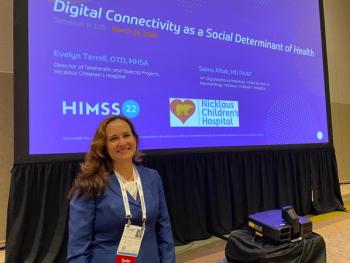
Evelyn Terrell, director of telehealth at Nicklaus Children’s Hospital, outlines ways to ensure telehealth programs aren’t leaving patients behind.

Evelyn Terrell, director of telehealth at Nicklaus Children’s Hospital, outlines ways to ensure telehealth programs aren’t leaving patients behind.
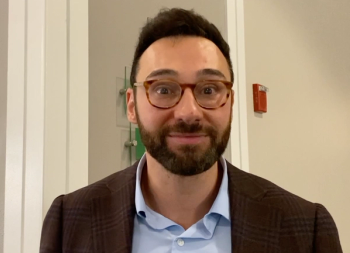
Baligh Yehia, an Ascension executive, explains how the system surveyed patients about their unmet needs, and then worked to help them.
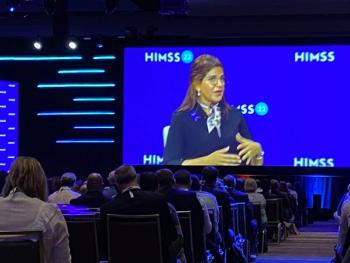
At a panel moderated by Scott Pelley of ’60 Minutes,’ three top experts said healthcare leaders must show their workers they are truly valued. Otherwise, expect the worker shortage to get worse.
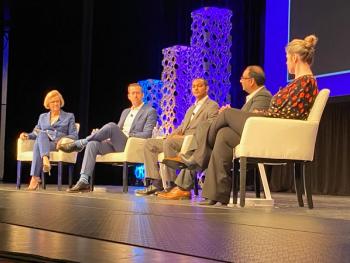
In an overview of the state of healthcare, leading experts talked about what needs to happen from the perspectives of providers, doctors, patients and payers.
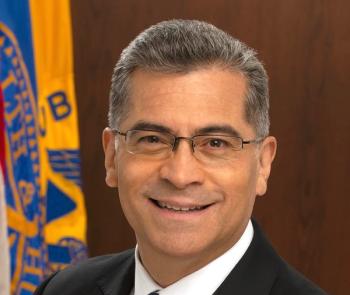
U.S. Secretary of Health and Human Services Xavier Becerra and Chiquita Brooks-LaSure, head of the Centers for Medicare and Medicaid Services, stressed the importance of sharing data. They also talked about taking action against those who are blocking information.

Elsevier Health partnered with Ipsos for its first ‘Clinician of the Future’ report. Healthcare professionals say they’re worried about increasing technology demands and a shortage of doctors and nurses.
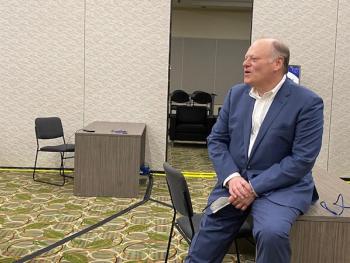
The president and CEO of the organization said it's going to be a growing focus over the next several years. He talked about working to close inequities in America and worldwide.
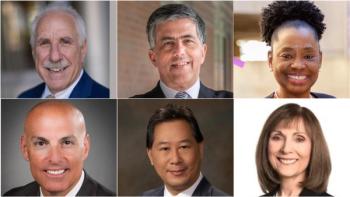
In other executive news, an Ohio system names a chief digital health officer, CareFirst hires a chief diversity officer, and others are tapped for new posts.

Coke, and much of corporate America, surpasses healthcare in measuring and disclosing environmental impacts.

The providers are coming together in the newly formed Evolve Health Alliance. Officials say they will help each other with staffing needs and exchange ideas to improve operations.

Reducing patient leakage is a top concern for healthcare leaders. Angie Franks, CEO of ABOUT Healthcare, talks about what hospitals should be doing.
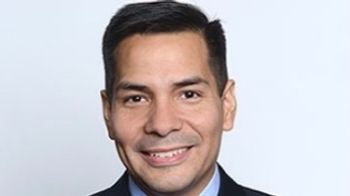
Thomas Sequist explains why his mission to improve health equity is very personal.

Dozens of healthcare organizations asked the Biden administration to permanently waive the requirement of an in-person evaluation.

The initiative aims to spur innovation and healthcare solutions to help underserved communities.

The group examined hospitals with the highest volume of coronavirus patients in the first several months of 2020. Healthgrades’ chief medical officer says it’s a way to recognize providers who delivered exceptional care.

Most doctors practice in cities and suburbs, but a new survey suggests many physicians are open to a move to the country.

The president's strategy calls for training more mental health professionals, grants to address burnout in healthcare workers and expanding virtual options for behavioral health.
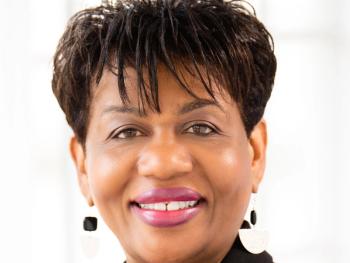
Tanya Blackmon, Novant Health's chief diversity officer, talks about engaging leaders and staff, dealing with resistance and tying inclusion to strategic goals.
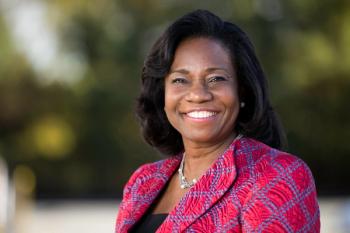
Dr. Jennifer Mieres, Northwell’s chief diversity and inclusion officer, talks about getting buy-in, early struggles, signs of progress, and partnering with the community.

A recent study found evidence of bias in electronic health records. Michael Sun, the study’s lead author, talks about the implications and steps healthcare leaders should be taking.

In other news, UPMC hires a new chief lobbyist, HCA Healthcare names a new leader of a Florida hospital, and more.

Dr. Lorna Breen died by suicide early in the COVID-19 pandemic. A foundation formed in her honor helped craft federal legislation to help healthcare workers, and it is just getting started.

Two healthcare experts said the COVID-19 pandemic shows the need for better and more open plans.
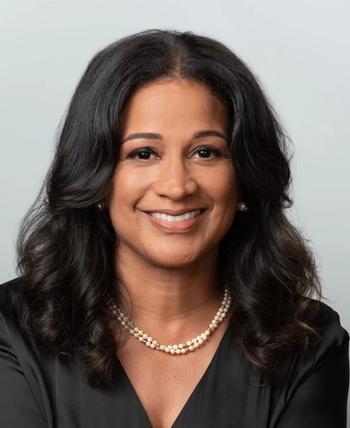
Kim Drumgo said she hopes to get people to think differently about diversity, equity, and inclusion. She talks about the work needed to embed those principles throughout the central Pennsylvania health system.

The three projects have a price tag of nearly $800 million. Mayo Clinic plans to build a new tower in Jacksonville as the system expands more in the Sunshine State.